This year, I missed my goal, which I have never liked to do. Looking back, I read some larger books and read more slowly this year. I also co-wrote two books. One will come out in August of 2024. You can pre-order it here. One of the ways God has always spoken to me is through the books I read and the sermons I study. In God’s providence that happened again, he led me to read just the right books at just the right time.
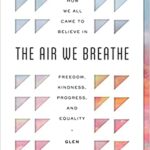
10. The Air We Breathe by Glenn Scrivener
Glenn is brilliant. His brilliance is seen not in how much he knows but in how he is able to distill what he knows into language that those of us who are less brilliant can understand. This book is well-researched and extremely accessible. In The Air We Breathe, Scrivener makes the case quite well that Christianity changed everything. This a book that is “should read” for every Christian and a “must read” for any teenager headed to college. Well done mate.
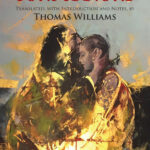
9. Confessions by Augustine translation by Thomas Williams
I have read Augustine’s Confessions several times and usually get pulled in when a new translation comes out. This translation did not disappoint. Scott McDonald says “Williams has succeeded in capturing both sides of Augustine’s mind in a richly evocative, impeccably reliable, elegantly readable presentation of one of the most impressive achievements in Western thought—Augustine’s Confessions.” I couldn’t agree more. The beauty and readability make it a perfect translation for those who have never had the joy of reading this brilliant work of art in the form a prayer.
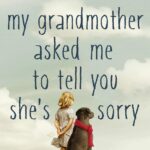
8. My Grandmother Asked Me to Tell You She’s Sorry by Fredrik Backman
Backman is a brilliant storyteller. This book was so profound and emotional. It tells the sweet story of death, loss, and redemption. The story is told through the eyes of Else, a young seven-year-old girl who, after her Grandmother dies, must go on the most incredible adventure of her lifetime that brings healing to her whole family. It was a brilliant story.
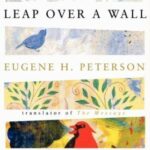
7. Leap Over a Wall by Eugene Peterson
It is no surprise that Eugene made my list again. His writing style of telling stories mixed with Biblical exposition is so unique and so profound. His books always challenge me to trust Christ and be a better pastor. I read this book because we are preaching through 1 Samuel. Peterson in his typical poetic, prophetic tone. “Evil doesn’t stand a chance against goodness. Persecution is futile in the presence of faithfulness. Hostility is picayune compared to friendship…Evil doesn’t diminish David; it doesn’t narrow him. Bound in the covenant of Jonathan’s friendship, David is protected; none of Saul’s evil gets inside him. In the face of such concentrated goodness, evil is powerless to maintain itself.”
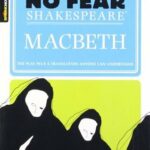
6. Macbeth by William Shakespeare
I love Shakespeare. King Lear has to be one of my favorite plays of all time. I had never read Macbeth, and what a profound play. The themes of divine providence, human depravity, and wreckless ambition pervade the drama. Macbeth receives a prophecy, and it comes partly true rather than trust it produces sinful ambition. He says early on that the only thing that motivates him is ambition, which makes people rush ahead of themselves toward disaster. This play was a sobering reminder that we are to do as the preacher says in Ecclesiastes, “Tremble and Trust.”
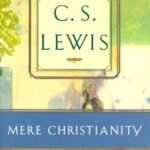
5. Mere Christianity by C.S. Lewis
This is my fourth time reading Mere Christianity, and it was special. I read it with a small group of High School students, and we discussed each chapter by Zoom. I would have to cut and paste the whole thing to quote my favorite parts. Lewis’ ability to distill complex ideas is second to none. It is a must-read for all who consider themselves Christian. Here is one of my favorite quotes from Mere Christianity “Even in literature and art, no man who bothers about originality will ever be original: whereas if you simply try to tell the truth (without caring twopence how often it has been told before) you will, nine times out of ten, become original without ever having noticed it.”
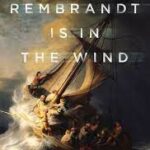
4. Rembrandt is in The Wind by Russ Ramsey
This book was beautiful as it was profound. Ramsey’s words were a balm in a year that has been among the most difficult of my life. As an opening salvo, Ramsey says, “It is hard to render an honest self-portrait if we want to conceal what is unattractive and hide what’s broken. We want to appear beautiful. But when we do this, we hide what needs redemption, what we trust Christ to redeem. And everything redeemed by Christ becomes beautiful…pretending I’m okay when I actually need help— I’m concealing from others the fact that I am broken. But my wounds need binding. I need asylum, And if I can’t show that honestly, how will anyone ever see Christ in me?” Powerful.
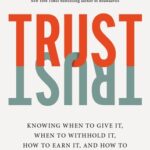
3. Trust by Henry Cloud
This is the first book I have read by Henry Cloud. I found it challenging and enlightening. Cloud outlines how trust is broken and how it can be restored. Trust is lost by Lack of understanding, Motive, Ability, Character, and Track Record. “The process of trust begins by listening and by understanding other people—what they want and what they’re feeling—in short, knowing what matters to them. The task is to know them instead of to persuade them. People must feel known in order to trust. Trust begins not with convincing someone to trust you; it starts with someone feeling that you know them.”
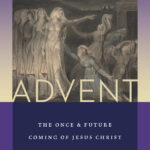
2. Advent: The Once and Future Coming of Christ by Flemming Rutledge
This book was on my to-read list for a long time and did not disappoint. What a joy to read this book throughout the Advent season this year. Rutledge has such a way with words. “As Advent draws to its close, the special nature of the season summons us to sober reflection on the nature of the world without a Savior. It is no coincidence that the promise of an everlasting throne was given by God to a man who had even less control over his own household than does the present queen of England. The mercy of God does not depend on human virtue for its fulfillment. The mystery of the Advent season lies precisely in its location, placed as it is between the now of human failure and disappointment and the not yet of God’s coming kingdom.”
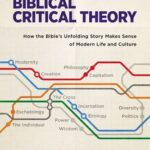
1. Biblical Critical Theory by Christopher Watkin
Of all the books I read this year. Biblical Critical Theory had the most acclaim. It was not a quick or easy read, but it was necessary. What Watkin does is brilliant. He addresses cultural issues with the truth of the Biblical theology mixed with a Christian worldview. Tim Keller, in the Intro, aptly says that “Christian theory must point to the beauty and truth of the gospel as the source of numerous fulfilling counternarratives.”
“Yeshua’s story has its happy ending because of its tragic one: happiness after tragedy, on top of it, through it, achievable only by going to the very end of the tragic road.”54 It is, if you will, a mature happy ending, a happy ending that does not try to airbrush away all sorrow and sacrifice. It is neither a tragedy nor a comedy but the complex brew of reality from which both forms are distilled, with the complexity that they both betray.”
Christopher Watkin
The Rest
- 11. The One Life Solution – Henry Cloud
- 12. Gospel-Centered Family – Ed Moll
- 13. Remaking the World: How 1776 Created the Post-Christian West – Andrew Wilson
- 14. The Voyage of the Dawn Treader – C. S. Lewis
- 15. The Rescuer – Jason Bautel
- 16. Humility – Gavin Ortland
- 17. Humility (a second time) – Gavin Ortland
- 18. Ordinary Heros:A Memoir of 9/11 – Joeseph Pfifer
- 19. Children’s Ministry in Crisis – Ester Moreno
- 20. Necessary Endings – Henry Cloud
- 21. Romeo and Juliet – William Shakespeare
- 22. The Faith of Our Children – Matt Markins
- 23. Life of the Beloved – Henri Nouwen
- 24. The Story of Reality – Gregory Koukl
- 25. Blood From a Stone – Adam McHugh
- 26. When Helping Hurts – Steve Corbett and Brian Fikkert
- 27. Be Thou My Vision – Jonothan Gibson
- 28. How the Irish Saved Civilization – Thomas Cahill
- 29. The 1998 Yankees – Jack Curry
- 30. An Experiment in Criticism – C. S. Lewis
- 31. Finding The Right Hills to Die On – Gavin Ortland
- 32. Eat This Book – Eugene Peterson
- 33. The Book of the Dun Cow – Walter Wngerin Jr.
- 34. The Story of Abortion in America – Marvin Olasky and Leah Savas
- 35. On Asking God Why – Elisabeth Elliot
- 36. Journey to The Cross – Paul David Tripp
- 37. Gentile and Lowly – Dane Ortland
- 38. The Many Assassinations of Samir The Seller of Dreams – Daniel Nayeri
- 39. Don’t Burn This Book – Dave Rubin
- 40. The Freedom of Self-Forgetfulness – Tim Keller
- 41. The Gospel Comes With a House Key – Rosaria Butterfield
- 42. Beowulf
- 43. From Plato to Christ – Lois Markos
- 44. Moby Dick – Herman Melvill
- 45. Five Smooth Stones for Pastoral Work – Eugene Peterson

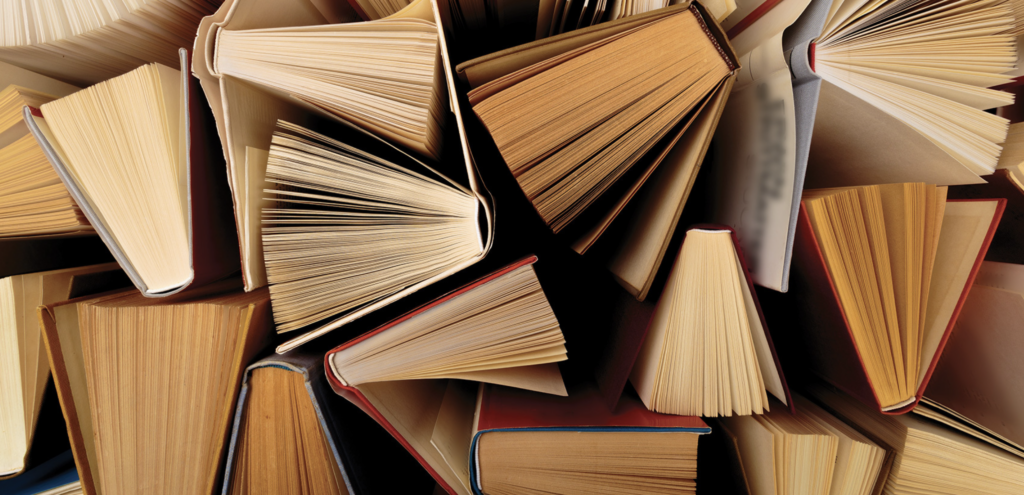
Sam, that is a great and eclectic list of books. I’m wondering, do you buy and read physical books, ebooks, both, or audible books? Just curious. I bounce back and forth between physical and Kindle.
I always am reading one physical book I prefer physical books, one kindle book so I can read on the run, and one audio book I can listen on my commute to and from work.